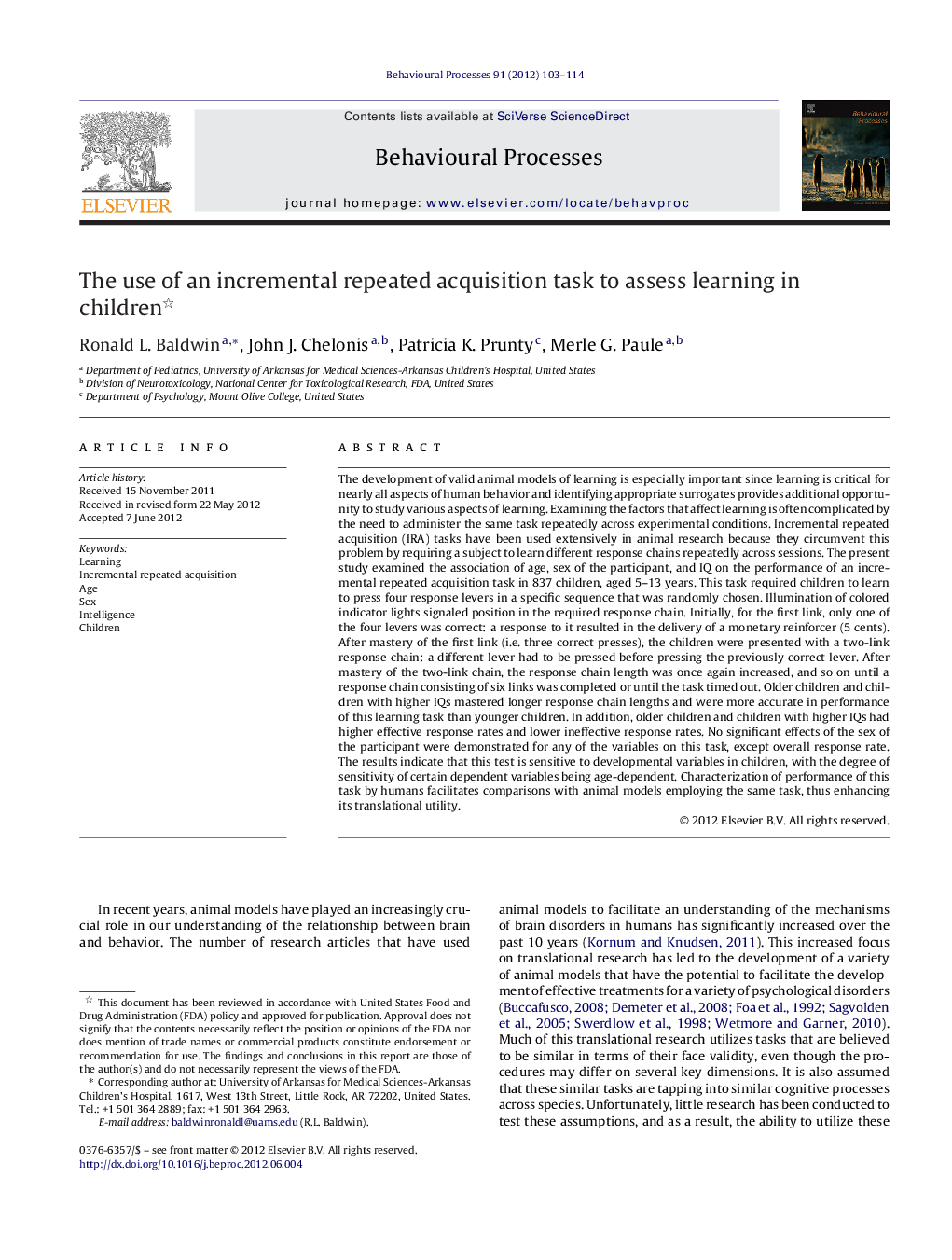| کد مقاله | کد نشریه | سال انتشار | مقاله انگلیسی | نسخه تمام متن |
|---|---|---|---|---|
| 2426936 | 1105933 | 2012 | 12 صفحه PDF | دانلود رایگان |

The development of valid animal models of learning is especially important since learning is critical for nearly all aspects of human behavior and identifying appropriate surrogates provides additional opportunity to study various aspects of learning. Examining the factors that affect learning is often complicated by the need to administer the same task repeatedly across experimental conditions. Incremental repeated acquisition (IRA) tasks have been used extensively in animal research because they circumvent this problem by requiring a subject to learn different response chains repeatedly across sessions. The present study examined the association of age, sex of the participant, and IQ on the performance of an incremental repeated acquisition task in 837 children, aged 5–13 years. This task required children to learn to press four response levers in a specific sequence that was randomly chosen. Illumination of colored indicator lights signaled position in the required response chain. Initially, for the first link, only one of the four levers was correct: a response to it resulted in the delivery of a monetary reinforcer (5 cents). After mastery of the first link (i.e. three correct presses), the children were presented with a two-link response chain: a different lever had to be pressed before pressing the previously correct lever. After mastery of the two-link chain, the response chain length was once again increased, and so on until a response chain consisting of six links was completed or until the task timed out. Older children and children with higher IQs mastered longer response chain lengths and were more accurate in performance of this learning task than younger children. In addition, older children and children with higher IQs had higher effective response rates and lower ineffective response rates. No significant effects of the sex of the participant were demonstrated for any of the variables on this task, except overall response rate. The results indicate that this test is sensitive to developmental variables in children, with the degree of sensitivity of certain dependent variables being age-dependent. Characterization of performance of this task by humans facilitates comparisons with animal models employing the same task, thus enhancing its translational utility.
► Older children mastered longer response chains and were more accurate in completing response chains than younger children.
► Older children had higher effective response rates and lower ineffective response rates than younger children.
► Children with higher IQs mastered response chains and were more accurate in completing response chains than children with lower IQs.
► Children with higher IQs had higher effective response rates at most ages and typically had lower ineffective response rates than children with lower IQs.
► No significant effects of sex were demonstrated for any of the variables on this task, except overall response rate.
Journal: Behavioural Processes - Volume 91, Issue 1, September 2012, Pages 103–114